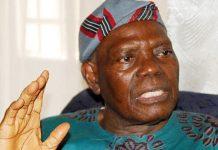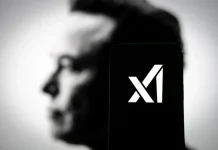Google on Monday announced the start-ups that would participate in the first Google Launchpad Accelerator Africa class in Lagos to build the digital ecosystem in the country.
The Country Director of Google Nigeria, Mrs Juliet Ehimuan-Chiazor, disclosed this while unveiling the start-ups with 12 developers making the list.
She also announced a partnership with Udacity and Andela to provide 15,000 single course scholarships and 500 Nanodegree scholarships to aspiring and professional developers across Nigeria, Kenya and South Africa.
According to her, Google announced the first Launchpad Accelerator Africa class on November 9, 2017, which applications closed on December 10 2017.

“Launchpad Accelerator Africa, is a programme for top early-stage African start-ups that will operate out of Lagos, Nigeria and was announced at Google for Nigeria in July last year.
“At the time, we also announced the extension of the Google’s Digital Skills for Africa programme to train 10 million Africans, including 100,000 developers, over five years.
“The scholarships announced today form part of that commitment,” she said.
She said that over the next three years the Launchpad Accelerator Africa programme would provide African start-ups with over three million dollars in equity-free support.
She said that they would also have access to a working space, access to expert advisers from Google, Silicon Valley, and Africa, and participants would receive travel and PR support during each three-month programme.
Ehimuan-Chiazor said to qualify, start-ups had to be a technology inclined, based in Sub-Saharan Africa, targeting the African market and have already raised seed funding.
She said that Google additionally would considered the problem the start up was trying to solve, how it creates value for users, and how they addressed a real challenge for their home city, country or Africa broadly.
Also the Sub-Saharan Africa Ecosystem Regional Manager, Mr Andy Volk said that thee company was looking forward to working with the first Launchpad Accelerator Africa class to drive innovation into the African market.
“Africa is home to some incredibly smart people who are working to solve the continent’s problems using homegrown solutions and we are honoured to be able to be part of that,” he said.
The participants in no particular order for the first Launchpad Accelerator Africa class are, Babymigo from Nigeria, a social community for expecting mothers and young parents, Flexpay from Kenya, an automated and secured layaway e-commerce system.
Kudi from Nigeria, a payment for Africa through messaging, OkadaBooks from Nigeria, a social platform that allows users easily create, spread and sell their stories/books/documents in a matter of minutes.
Also is OMG Digital from Ghana, a media platform that produces hyper-local, engaging and entertaining content African millennials love to consume and share.
Pezesha from Kenya is a scalable Peer to Peer micro-lending marketplace that allows Kenyans to loan to Kenyans, Piggybank.ng, from Nigeria which allows Africans put aside little amounts of money periodically till they reach a savings target.
Riby is from Nigeria, a peer-to-peer banking platform for cooperatives that allows them to save, borrow and invest, together, swiftVEE from South Africa, platform for connecting livestock agencies to a network of buyers and sellers.
TangoTv from Tanzania is a media streaming and video on demand service for African local content; films and shows, Teheca from Uganda helps families and individuals find the right health care providers/workers in Uganda.
Thrive Agric from Nigeria, crowdfunds investments for small holder farmers, and provides to them in form of inputs, tech driven advisory and access to market.
“Google is committed to the Sub-Saharan Africa developer ecosystem and has, since April 2016, hosted 13 Launchpad Build and Start events across Kenya, Nigeria and South Africa.
“It features some 228 speakers and engaging 590 attendees from local start-ups in each country.
“It also runs programmes such as Google Developer Groups and Women Techmakers, providing training and support for developers aligned with real-life job competency requirements.
“Community groups engage in activities like Study Jams, study groups for developers. There are some 140 communities across 25 countries in SSA.
“Some 61 of these groups hosted 81 Study Jams in 10 countries reaching over 5,000 developers in the last year,” she said.


























